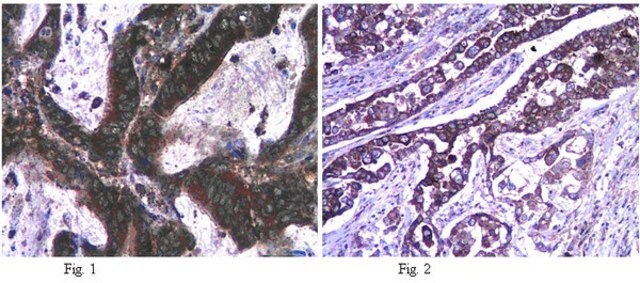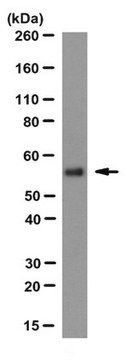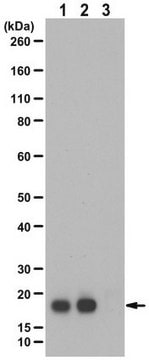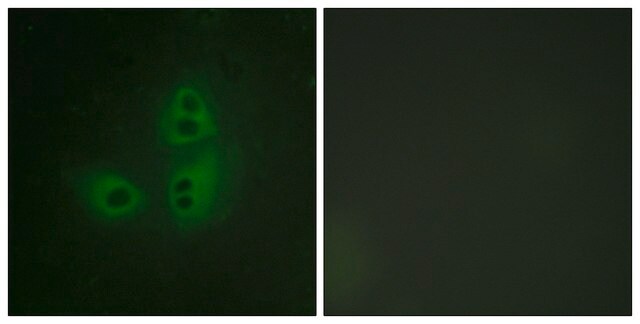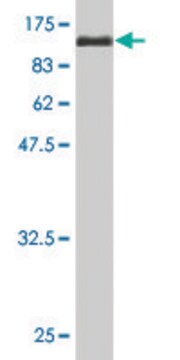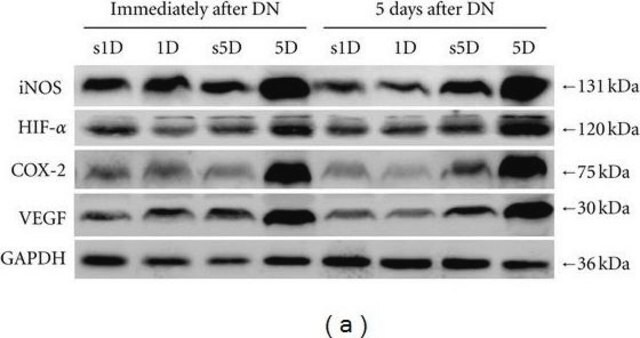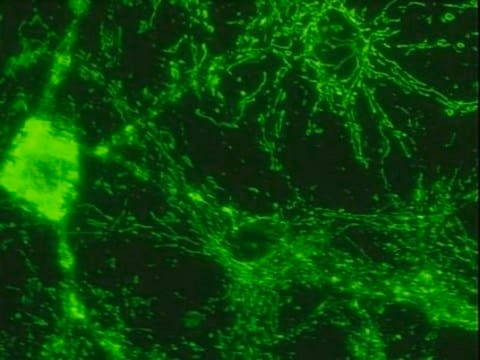AB5384
Anti-Nitric Oxide Synthase II Antibody
serum, Chemicon®
Synonym(s):
NOS II, iNOS
Sign Into View Organizational & Contract Pricing
All Photos(1)
About This Item
UNSPSC Code:
12352203
eCl@ss:
32160702
NACRES:
NA.41
clone:
polyclonal
application:
IHC
WB
WB
species reactivity:
human
technique(s):
immunohistochemistry: suitable
western blot: suitable
western blot: suitable
citations:
8
Recommended Products
biological source
rabbit
Quality Level
antibody form
serum
antibody product type
primary antibodies
clone
polyclonal
species reactivity
human
manufacturer/tradename
Chemicon®
technique(s)
immunohistochemistry: suitable
western blot: suitable
NCBI accession no.
UniProt accession no.
shipped in
dry ice
target post-translational modification
unmodified
Gene Information
human ... NOS2(4843)
General description
The inducible isoform of the enzyme nitric oxide synthase (iNOS, NOS-II) is synthesized by macrophages and many other cell types in response to proinflammatory cytokines and certain other stimuli, such as hypoxia and stress.
Specificity
Inducible nitric oxide synthase (iNOS, NOS-II). No cross-reaction with nNOS and eNOS by immunohistochemistry. AB5384 reacts with human glia and certain neurons in Alzheimer′s disease by immunohistochemistry.
Immunogen
C-terminal 19 amino acid peptide from human chondrocyte nitric oxide synthase.
Application
Detect Nitric Oxide Synthase II using this Anti-Nitric Oxide Synthase II Antibody validated for use in WB, IH.
Research Category
Neuroscience
Neuroscience
Research Sub Category
Oxidative Stress
Oxidative Stress
Western blot: 1:1,000-1:2,500 (ECL).
Immunohistochemistry: 1:2,500-1:6,000 (ABC).
Optimal working dilutions must be determined by end user.
Immunohistochemistry: 1:2,500-1:6,000 (ABC).
Optimal working dilutions must be determined by end user.
Physical form
Rabbit serum. Liquid containing 0.05% sodium azide.
Storage and Stability
Maintain frozen at -20°C in undiluted aliquots for up to 6 months. Avoid repeated freeze/thaw cycles.
Legal Information
CHEMICON is a registered trademark of Merck KGaA, Darmstadt, Germany
Disclaimer
Unless otherwise stated in our catalog or other company documentation accompanying the product(s), our products are intended for research use only and are not to be used for any other purpose, which includes but is not limited to, unauthorized commercial uses, in vitro diagnostic uses, ex vivo or in vivo therapeutic uses or any type of consumption or application to humans or animals.
Not finding the right product?
Try our Product Selector Tool.
Storage Class Code
10 - Combustible liquids
WGK
WGK 1
Certificates of Analysis (COA)
Search for Certificates of Analysis (COA) by entering the products Lot/Batch Number. Lot and Batch Numbers can be found on a product’s label following the words ‘Lot’ or ‘Batch’.
Already Own This Product?
Find documentation for the products that you have recently purchased in the Document Library.
Imaging pulmonary inducible nitric oxide synthase expression with PET.
Huang, HJ; Isakow, W; Byers, DE; Engle, JT; Griffin, EA; Kemp, D; Brody, SL; Gropler et al.
Journal of Nuclear Medicine null
Oxidative tissue injury in multiple sclerosis is only partly reflected in experimental disease models.
Schuh, C; Wimmer, I; Hametner, S; Haider, L; Van Dam, AM; Liblau, RS; Smith, KJ; Probert et al.
Acta neuropathologica null
Multiple sclerosis deep grey matter: the relation between demyelination, neurodegeneration, inflammation and iron.
Haider, L; Simeonidou, C; Steinberger, G; Hametner, S; Grigoriadis, N; Deretzi, G; Kovacs et al.
Journal of Neurology, Neurosurgery, and Psychiatry null
Jonathon Chon Teng Chio et al.
Journal of neuroinflammation, 16(1), 141-141 (2019-07-11)
Spinal cord injury (SCI) is a condition with few effective treatment options. The blood-spinal cord barrier consists of pericytes, astrocytes, and endothelial cells, which are collectively termed the neurovascular unit. These cells support spinal cord homeostasis by expressing tight junction
Disease-specific molecular events in cortical multiple sclerosis lesions.
Fischer, MT; Wimmer, I; Hoftberger, R; Gerlach, S; Haider, L; Zrzavy, T; Hametner et al.
Brain null
Our team of scientists has experience in all areas of research including Life Science, Material Science, Chemical Synthesis, Chromatography, Analytical and many others.
Contact Technical Service